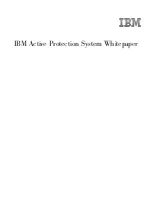
Glossary
Nero Burning ROM
91
Labelflash
Labelflash is a technology with which pictures and texts can be burned on the label or data
side of a disc with a laser.
LightScribe
LightScribe is a technology with which pictures or texts can be burned on the label side of
discs with a laser.
MP3
The MPEG-1 Audio Layer 3 audio format is used to reduce the size of audio files to a frac-
tion of their original size (factor 1:10) with little loss of quality. You can estimate about 1 MB
per minute as opposed to 10 MB for the original files. This value and the quality can vary de-
pending on the complexity of the audio signal. The bit rate used can be used as a measure
of quality. The higher the bit rate, the better the quality, but also the more memory required.
mp3PRO
mp3PRO is an MP3 codec that compresses audio files even more but in lower bit rates and
better quality. 64 kBit/s in mp3PRO is the equivalent to 128 kBit/s in MP3.
MPEG-1
The Moving Picture Experts Group defined this industry standard for video and audio co-
decs. MPEG-1 is part of the MPEG compression family and has the highest compression ra-
te. MPEG-1 is the format for video CDs.
MPEG-2
The Moving Picture Experts Group defined this industry standard for video and audio co-
decs. There is little difference between MPEG-1 and MPEG-2: MPEG-2 is a broadcast stan-
dard and better for televisions that are interlaced. MPEG-2 is used as a video format for
DVDs.
Multisession
A multisession refers to completing a disc in multiple cycles. After a first session has been
written to the disc, information can then be added in another record because the disc has not
been finalized.
Nero Digital
Various MPEG-4 video and audio codecs are collated in Nero Digital and are fully compati-
ble with the standard MPEG-4. Nero AG is continuing to develop these. In this way a sub-
stantially higher quality of the multi-media data is achieved. Further, additional features such
as subtitles have been implemented.
NTSC
The National Television System Committee Standard is a standard for video and TV in the
USA and Japan. NTSC has more individual frames (29.97 frames per second) than PAL, but
has fewer horizontal lines (525 lines).





































